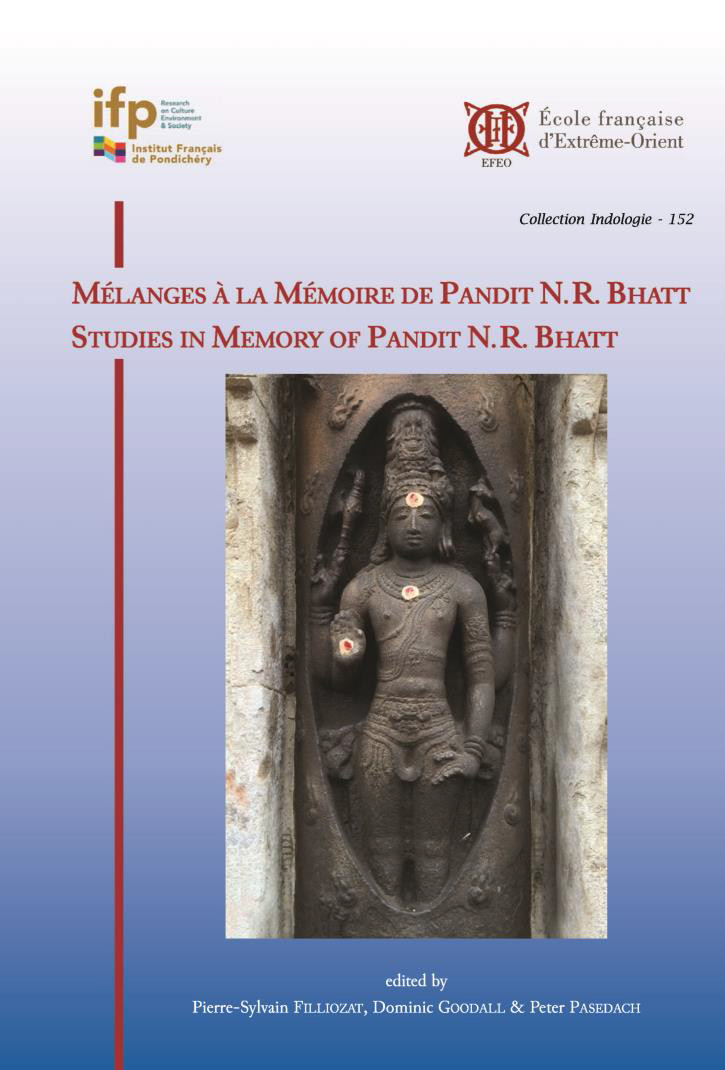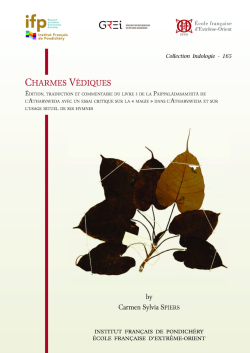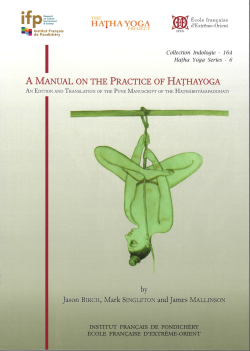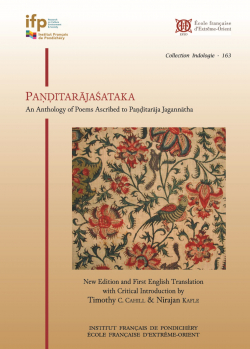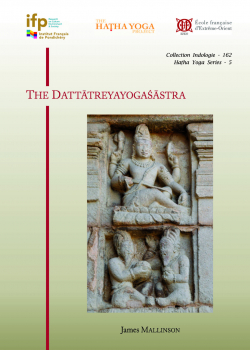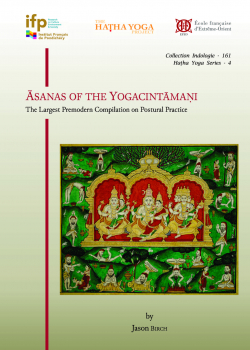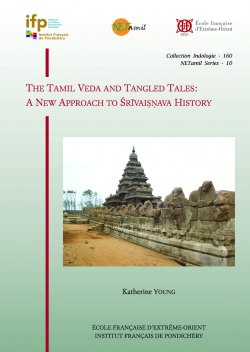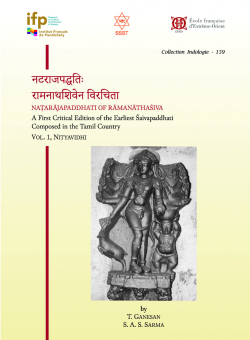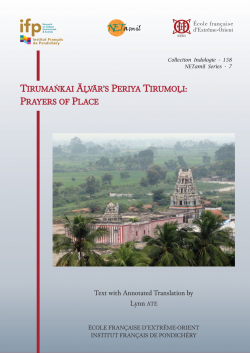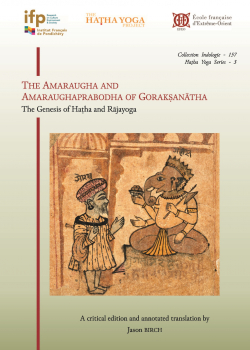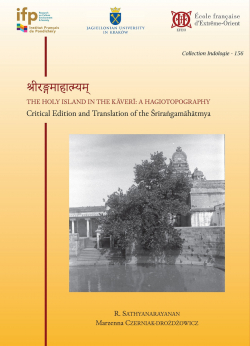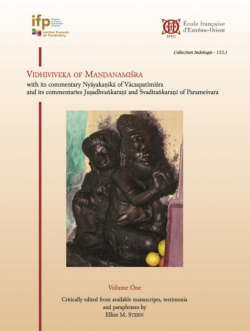The catalog of EFEO Publications includes works on a wide range of disciplines in the humanities and social sciences (archaeology, history, anthropology, literature, philology, etc.), centered on Asia, from India to Japan.
These publications address both specialists, and a wider public interested in Asian civilizations and societies.
Mélanges à la mémoire de Pandit N. R. Bhatt / Studies in Memory of Pandit N. R. Bhatt
Collection : Collection Indologie
Collection's number: 152
Editor: Goodall (Dominic), Filliozat (Pierre-Sylvain), Pasedach (Peter)
Edition: EFEO, Institut français de Pondichéry (IFP)
Publication date: 2022
Status : Available
40,00 €
ISBN-13 : 9782855392462
ISSN : 0073-8352
Width : 17 cm
Height : 24 cm
Weight : 0.9 kg
Number of pages : 521
Distributor : EFEO Diffusion, EFEO Pondichéry Contact : shanti@efeo-pondicherry.org
Geography : India
Language : French, English
Place : Pondichéry
Support : Papier
Description :
24x17, XXIV+497 p., English, French, paperback
Collection Indologie n˚152
Abstract
This collection of essays honours the memory of the late Pandit N.R. Bhatt, who contributed to pioneering research into the history of Śaivism in the French institutions of research in Pondicherry, notably through his editions of Sanskrit works of the Śaivasiddhānta and through his work of gathering the largest collection of Śaiva manuscripts worldwide, recognised as a Memory of the World collection by UNESCO in 2005. After a preface about N.R. Bhatt’s life and a bibliography of his œuvre, sixteen contributions by colleagues and disciples cover aspects of the history of tantrism, of Śaiva ritual and doctrine. Two more articles deal with iconography and one last contribution publishes an eighteenth-century account of the siege of Pondicherry in 1778.
Table of contents
Notes
You can also order this title with our Pondicherry center at the following address:
shanti@efeo-pondicherry.org
Or with the French Institute of Pondicherry at the following address:
library@ifpindia.org
Orders to India must be placed with our center in Pondicherry or the French Institute of Pondicherry.
About the editor
Goodall (Dominic)
Member of the EFEO since 2000.
Dominic Goodall studied Greek and Latin, then Sanskrit at Pembroke College, Oxford. After finishing his BA (Sanskrit with Pali, 1990), he came to Hamburg for two years to learn medieval Tamil with Professor S.A. Srinivasan. He then returned to Oxford, to Wolfson College, where, under the guidance of Professor Alexis Sanderson, he produced a critical edition of the opening chapters of Bhaṭṭa Rāmakaṇṭha’s tenth-century commentary on the Kiraṇatantra, which he submitted as a doctoral thesis in 1995 and subsequently published from Pondicherry in 1998. He was attached to the French Institute of Pondicherry as a junior researcher in 1996–1997 before returning to Oxford as Wolfson College Junior Research Fellow of Indology from 1998 to 2000. In 2000, he became a member of the École française d’Extrême-Orient (EFEO, “French School of Asian Studies”). He became Head of the Pondicherry Centre of the EFEO in 2002, where he remained until April 2011.
Posted in Paris from 2011 to 2015, he gave lectures at the École pratique des hautes études (Religious Sciences Section), principally on Cambodian inscriptions in Sanskrit and on the history of Śaivism from unpublished sources. He is now once again posted in Pondicherry, where he continues to pursue his scholarly interests, in particular in Sanskrit poetry and in the history of the Śaiva Siddhānta.
Among his publications are editions and translations of works of poetry in Sanskrit and of hitherto unpublished Śaiva scriptures and theological commentaries.
He is currently a professor (directeur d’études) at the EFEO, co-editor with Dr. Marion Rastelli of the Viennese dictionary of tantric terminology, the Tāntrikābhidhānakośa, and a contributor to the Hamburg Encyclopaedia of Manuscript Cultures in Asia and Africa (EMCAA).
In May 2016, he was elected membre correspondent étranger de l'Académie des Inscriptions et Belles-Lettres.
Filliozat (Pierre-Sylvain)
A member of the Académie des Inscriptions et Belles-Lettres, as well as of several scholarly societies, including the Société Asiatique, and professor emeritus at the École pratique des hautes études, Pierre-Sylvain Filliozat has published in several areas of Indology, including Pāṇinian grammar, the history of Śaivism, and Sanskrit belles-lettres. His latest book, the result of a decades-long collaboration with his wife Vasundhara Filliozat, is about the magnificent city of Vijayanagara (Hampi).
Pasedach (Peter)
Peter Pasedach studied Classical Indology at Mainz and Hamburg, where he received his doctorate in 2018. He has taught in Hamburg, Göttingen and Leiden. Currently, he works on Mahākāvyas of 9th-century Kashmir and their commentaries. Another area of interest to him is yoga studies.
Related books
Collection Indologie
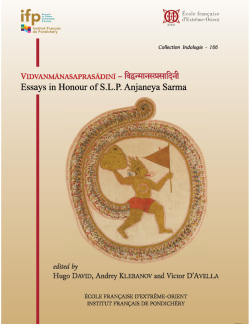
Vidvanmānasaprasādinī
S.A.S. SARMA, Dominic GOODALL, Harunaga ISAACSON, Suganya ANANDAKICHENIN, Hugo DAVID, Kei KATAOKA, Victor D’AVELLA, Giovanni CIOTTI, Andrey KLEBANOV, Émilie AUSSANT, Maria Piera CANDOTTI, Tiziana PONTILLO, Sibylle KOCH, Vincenzo VERGIANI, Timothy C. CAHILL, Somedeva VASUDEVA, Luther OBROCK, M. VINOTH, Maṇi DRĀVIḌA, Akane SAITO, Alex WATSON, Daniele CUNEO, Yūto KAWAMURA
60,00 €
2026
• Available
